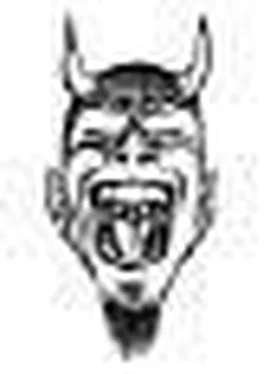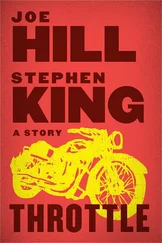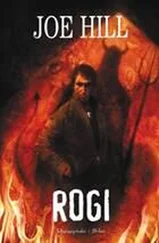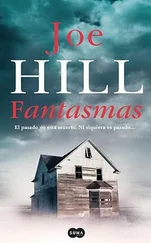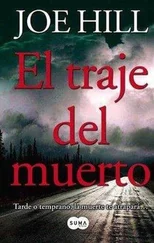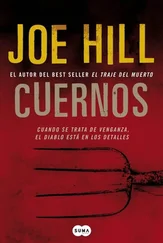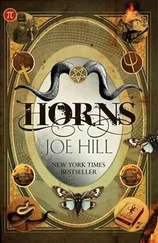He pivoted, looked at the back of her head, at the halo of flickering blue light, at the television beyond.
“Georgia? What are you doin’, darlin’?”
She didn’t reply.
He came forward, moving silently across the thick carpet. The picture on the flat-screen came into view first. The killers were finishing off the skinny white kid. Later they would get his girlfriend in a cinder-block hut close to a beach. Now, though, they were on an overgrown track somewhere in the bush, in the hills above the Gulf of California. The kid was on his stomach, his wrists bound together by a pair of white plastic flexi-cuffs. His skin was fish-belly pale in the tropical sunlight. A diminutive, walleyed Anglo, with a clownish Afro of crinkly red hair, stood with one cowboy boot on the kid’s neck. Parked down the road was a black van, the back doors thrown open. Next to the rear fender was the chubby Mex in the warm-up suit, an affronted expression hung on his face.
“Nos estamos yendo,” said the man in the sunglasses. “Ahora.”
The walleyed redhead made a face and shook his head, as if in disagreement, but then pointed the little revolver at the skinny kid’s head and pulled the trigger. The muzzle flashed. The kid’s head snapped forward, hit the ground, bounced back. The air around his head was suddenly clouded with a fine spray of blood.
The Anglo took his boot off the boy’s neck and stepped daintily away, careful to get no blood on his cowboy boots.
Georgia’s face was a pale, rigid blank, her eyes wide and unblinking, gaze fixed on the television. She wore the Ramones T-shirt she’d had on earlier, but no underwear, and her legs were open. In one hand—the bad hand—she had clumsy hold of Jude’s pistol, and the barrel was pushed deep into her mouth. Her other hand was between her legs, thumb moving up and down.
“Georgia,” he said, and for an instant she shot a sidelong glance at him—a helpless, pleading glance—then immediately looked back to the TV. Her bad hand rotated the gun, turning it upside down, to point the barrel against the roof of her mouth. She made a weak choking sound on it.
The remote control was on the armrest. Jude hit the power button. The television blinked off. Her shoulders leaped, a nervous, reflexive shrug. The left hand kept working between her legs. She shivered, made a strained, unhappy sound in her throat.
“Stop it,” Jude said.
She pulled the hammer back with her thumb. It made a loud snap in the silence of the studio.
Jude reached past her and gently pried the gun out of her grip. Her whole body went abruptly, perfectly still. Her breath whistled, short and fast. Her mouth was wet, glistening faintly, and it came to him then that he was semihard. His cock had begun to stiffen at the smell of her in the air and the sight of her fingers teasing her clit, and she was at just the right height. If he moved in front of the chair, she could suck his dick while he held the gun to her head, he could stick the barrel in her ear while he shoved his cock—
He saw a flicker of motion, reflected in the partly open window beyond his desk, and his gaze jumped to the image in the glass. He could see himself there and the dead man standing beside him, hunched and whispering in his ear. In the reflection Jude could see that his own arm had come up, and he was holding the pistol to Georgia’s head.
His heart lurched, all the blood rushing to it in a sudden, adrenalized burst. He looked down, saw it was true, he was holding the gun to her head, saw his finger squeezing the trigger. He tried to stop himself, but it was already too late—he pulled it, waited in horror for the hammer to fall.
It didn’t fall. The trigger wouldn’t depress the last quarter inch. The safety was on.
“Fuck,” Jude hissed, and lowered the gun, trembling furiously now. He used his thumb to ease the hammer back down. When he had settled it into place, he flung the pistol away from himself.
It banged heavily against the desk, and Georgia flinched at the sound. Her stare, however, remained fixed on some abstract point off in the darkness before her.
Jude turned, looking for Craddock’s ghost. No one stood beside him. The room was empty, except for himself and Georgia. He turned back to her and tugged on her slender white wrist.
“Get up,” he said. “Come on. We’re going. Right now. I don’t know where we’re going, but we’re getting out of here. We’re going someplace where there are lots of people and bright lights, and we’re going to try to figure this out. You hear me?” He could no longer recall his logic for staying. Logic was out the window.
“He isn’t done with us,” she said, her voice a shuddering whisper.
He pulled, but she didn’t rise, her body rigid in the chair, uncooperative. She still wouldn’t look at him, wouldn’t look anywhere except straight ahead.
“Come on,” he said. “While there’s time.”
“There is no more time,” she said.
The television blinked on again.
18
It was the evening news.Bill Beutel, who had started his journalism career when the assassination of Archduke Ferdinand was the breaking story of the day, sat stiffly behind the news desk. His face was a network of spiderweb wrinkles, radiating out from around his eyes and the corners of his mouth. His features were set in their grief expression, the look that said there was more bad news in the Middle East or that a school bus had gone off the interstate and rolled, killing all passengers, or a tornado in the South had inhaled a trailer park and coughed out a mess of ironing boards, splintered shutters, and human bodies.
“…there will be no survivors. We’ll bring you more as the situation continues to unfold,” Beutel said. He turned his head slightly, and the reflected blue screen of the teleprompter floated in the lenses of his bifocals for a moment. “Late this afternoon the Dutchess County sheriff ’s department confirmed that Judas Coyne, the popular lead singer of Jude’s Hammer, apparently shot and killed his girlfriend, Marybeth Stacy Kimball, before turning the weapon on himself to take his own life.”
The program cut to video of Jude’s farmhouse, framed against a sky of dingy, featureless white. Police cruisers had parked haphazardly in the turnaround, and an ambulance stood backed up almost to the door of Danny’s office.
Beutel continued to speak in voice-over: “Police are only beginning to piece together the picture of Coyne’s last days. But statements from those who knew him suggest he had been distraught and was worried about his own mental health.”
The footage jumped to a shot of the dogs in their pen. They were on their sides in the short, stubbly grass, neither of them moving, legs stretched stiffly away from their bodies. They were dead. Jude tightened up at the sight of them. It was a bad thing to see. He wanted to look away but couldn’t seem to pry his gaze free.
“Detectives also believe that Coyne played a role in the death of his personal assistant, Daniel Wooten, thirty, who was found in his Woodstock home earlier this morning, also an apparent suicide.”
Cut to two paramedics, one at either end of a sagging blue plastic body bag. Georgia made a soft, unhappy sound in her throat, watching one of the paramedics climb backward into the ambulance, hefting his end.
Beutel began to talk about Jude’s career, and they cut away to file footage of Jude onstage in Houston, a clip six years old. Jude was in black jeans and black steel-toed boots, but bare-chested, his torso glowing with sweat, the bearish fur on it plastered to his breast, stomach heaving. A sea of a hundred thousand half-naked people surged below him, a rioting flood of raised fists, crowd surfers tumbling this way and that along the flow of humanity beneath.
Читать дальше
